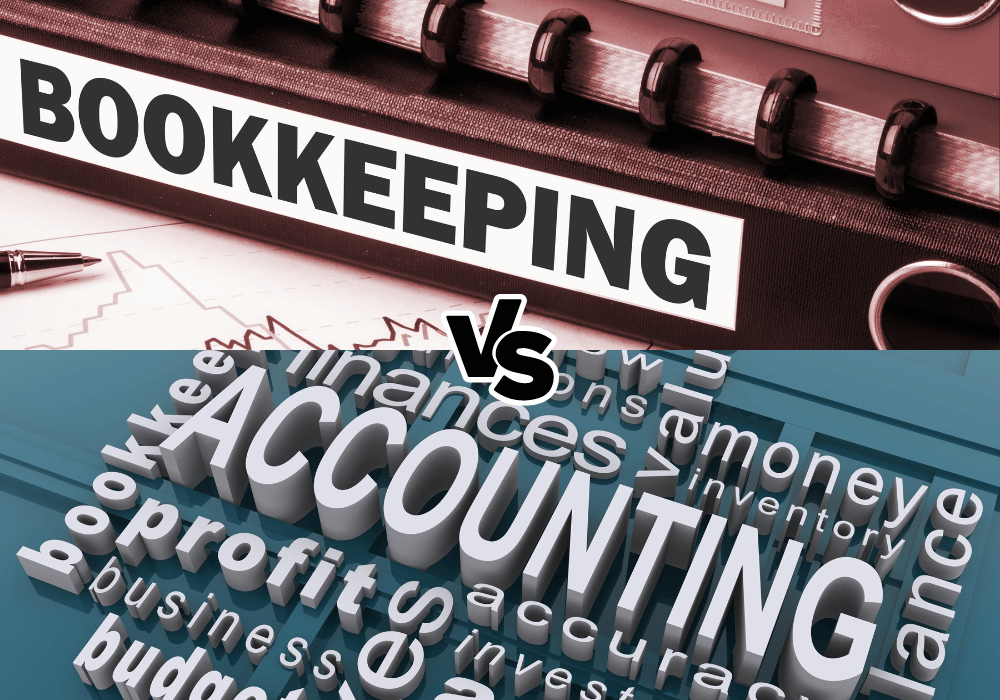Are you confused about when to hire a bookkeeper and when to hire an accountant? It’s a common dilemma faced by entrepreneurs, as the roles of these two professionals can often be quite similar. While they may have overlapping duties, there are distinct differences between them. In this post, we’ll explore the key distinctions between bookkeepers and accountants so that you can make an informed decision about which type of professional best suits your business needs.
What is the difference between bookkeepers and accountants
When it comes to managing finances, business owners may require the assistance of both bookkeepers and accountants. While these two professions may seem interchangeable, there are important distinctions between the two. Bookkeepers are respons ible for recording daily financial transactions such as sales, purchases, and payments. They keep track of receipts, invoices, and other documents to ensure that financial records are up-to-date and accurate. On the other hand, accountants use the financial information provided by bookkeepers to create financial statements, analyze trends, and develop financial strategies for businesses. They also provide advice on tax planning and help ensure that businesses comply with relevant legislation. By understanding the roles of both bookkeepers and accountants, businesses can ensure they are making informed decisions about their finances.
Types of tasks each one performs
In any job or project, it’s important to understand the roles and responsibilities of each team member involved. When it comes to delegating tasks, it’s equally important to know what type of tasks each individual is best suited for. Some team members may excel in creative tasks, such as graphic design or content creation, while others may thrive in more analytical tasks, like data analysis or project management. Understanding these tendencies and assigning tasks accordingly can lead to a more efficient and successful team effort. So, next time you’re teaming up on a project, take some time to consider the strengths of each member and allocate tasks accordingly.
The importance of having both for your business
It’s a common misconception that bookkeepers and accountants are interchangeable roles in a business. However, understanding the differences between the two is crucial for the financial health of your company. While bookkeepers handle day-to-day transactions and maintain accurate records, accountants use that information to provide financial advice and create long-term strategies. Having both roles ensures that your finances are managed efficiently and effectively, and that you have comprehensive insight into the financial health of your business. Together, a bookkeeper and accountant can help you make informed decisions and improve your bottom line. Don’t underestimate the importance of having both on your team.
 Hire a professional for bookkeeping or accounting services
Hire a professional for bookkeeping or accounting services
Managing the finances of a business can be a daunting task, especially when you are also responsible for handling other aspects of the business. Hiring an experienced professional for bookkeeping or accounting services can be incredibly beneficial to the success of your business. Not only can they help you accurately maintain financial records, but they can also offer valuable insights into your business’s financial performance. With their knowledge and expertise, they can help you identify areas where you can cut costs, improve cash flow, and ultimately increase profits. In addition, they can save you time and reduce the risk of errors in your financial reporting, which can be costly and time-consuming to correct. Overall, working with an experienced professional can give you peace of mind knowing that your finances are in good hands, leaving you more time to focus on growing your business.
In conclusion, it is clear that bookkeeping and accounting are distinct tasks. While they may overlap, they each have their own set of tasks and responsibilities that must be mastered to succeed in business. It’s important to understand the differences between the two positions so that you can make an informed decision on which type of professional to hire for your business needs. Having a trained professional handle bookkeeping or accounting tasks can help reduce errors while also ensuring accuracy in data tracking and management. Lastly, an open line of communication with either type of professional can help ensure successful collaboration that will maximize the potential of your business’s financial health.

